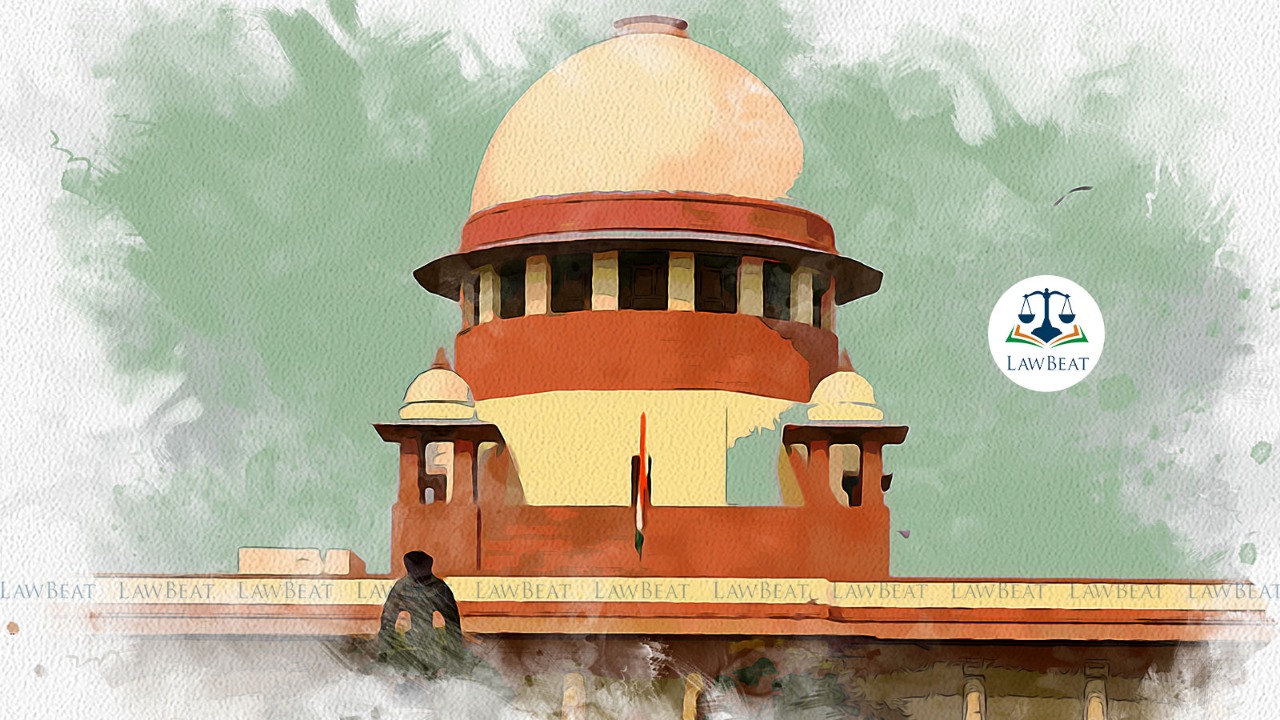"Distribution of powers contemplated by Article 370 not intended to be permanent": Law student seeks impleadment in challenge to abrogation of Article 370 in Supreme Court

X
A Law Student has filed an impleadment application in a plea challenging the abrogation of Article 370 stating that the distribution of powers contemplated by Article 370 is not intended to be permanent.
The application filed by Law Student Nikhil Upadhyay states, "There is clear indication in Article 370 itself that steadily powers and matters which were not available to the Parliament would be brought within its fold and State of J&K would be subjected to all the provisions of the Constitution in manner applicable to other states/U.T."
Impleadment has been filed in a plea pending before the Supreme Court challenging the abrogation of Article 370. The pending plea has been filed by former Air Vice Marshal Kapil Kak and former member of the Home Ministry’s Group of Interlocutors for J&K, Radha Kumar.
The application argues that having done away with Article 238 of the Constitution of India, there is no discernable rationale sans any other textual indication in the Constitution itself for having different categories of the States within the Union.
"The maximum life span of Article 370 was only till the existence of Constituent Assembly. It can be clarified from perusal of the Constituent Assembly debates and Article 370 clause (3) itself. Hence, as on today, it is illegal and unconstitutional," the application added.
The application thus seeks direction to declare that proviso of Article 370(3) lapsed with the dissolution of the J & K Constituent Assembly, which dissolved on January 26, 1957.
It further states that the Constitution of Jammu & Kashmir is invalid mainly for the reason that the same has not yet got the assent of the President, which is mandatory as per provisions of the Constitution.
The plea raises the following questions:
"(i) Whether Article 370 of the Constitution of India is a temporary provision, lapsed automatically with the dissolution of Constituent Assembly of J & K, which was dissolved on 26.01.1957 mainly in view of Constituent Assembly debate and Article 370 (3) itself?
(ii) Whether the Article 370 can be made permanent / perpetual even after dissolution of the Constituent Assembly as has been done impliedly in Sampat Kumar Case? [(1969) 2 SCR 365]
(iii) Whether the second proviso of clause 3 of Article 370 of the Constitution of India lapsed with the dissolution of the Constituent Assembly which was dissolved/lapsed in 1957 even assuming that the whole Article 370 didn’t lapse? (iv) Whether even assuming that the second proviso of clause 3 of the Article 370 of the Constitution still exists, even then, the same can be said mandatory in character/nature, in absence of Constituent Assembly of Jammu & Kashmir which was dissolved in 1957, or the same has been restricted/limited to optional/directory in nature only?
(v) Whether the Constitution of Jammu & Kashmir, which came into force/ in operation on 26.01.1957, several provisions of which are completely inconsistent with/against the provisions of the Constitution of India, are constitutionally valid, especially in view of the facts that the said Constitution of Jammu & Kashmir has never been ratified by the President nor has been ratified by the Parliament nor satisfies the requirement of Article 1, Preamble of the Constitution, which can’t be eroded/even remotely, as, is clear from perusal of Article 370 itself. (vi) Whether the Government of India has rightly delegated the matter related to citizenship etc. to the State Government especially in view of the provisions of Article 1, 11, 246 and Seventh Schedule of the Constitution of India and its Preamble, by agreement entered on 24.07.1952? Whether the Central Government has such power?
(vii) Whether even after ratifying the J & K accession unconditionally in 1954, itself by the Constituent Assembly, the same could further proceed to frame separate Constitution?"
The plea has further sought direction to declare all provisions of “Delhi Agreement - 1952” viz. clause II, etc. which are inconsistent with/in derogation of the provisions of the Constitution of India, void, illegal inoperative, unconstitutional and quash the same.
Case Title: Radha Kumar and Others Vs. Union of India and Others.
Next Story
